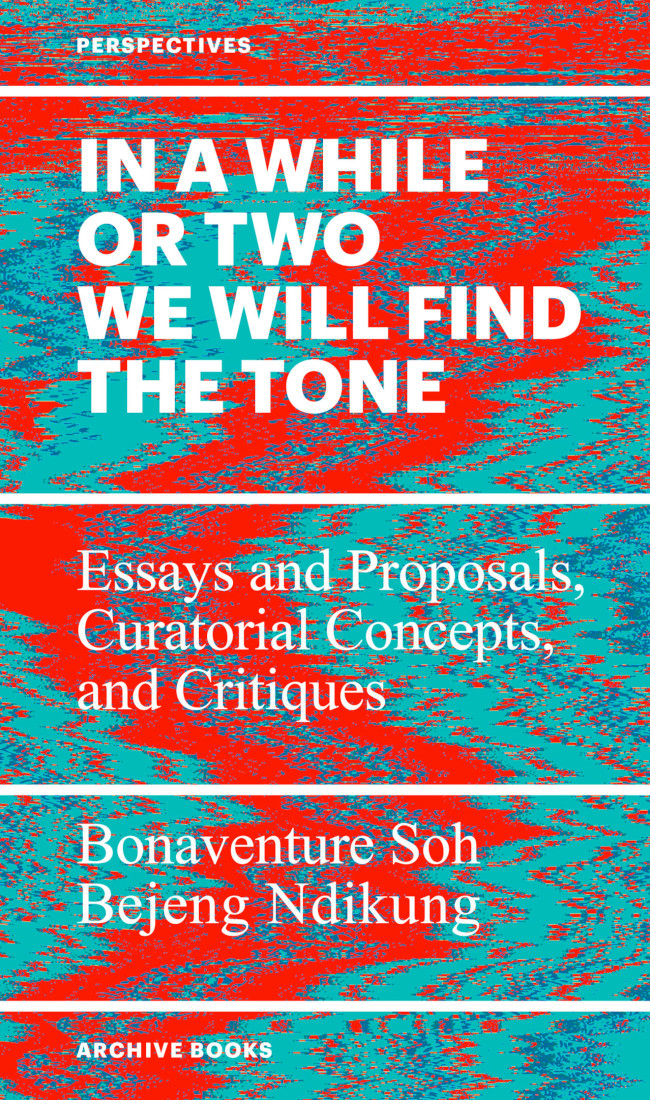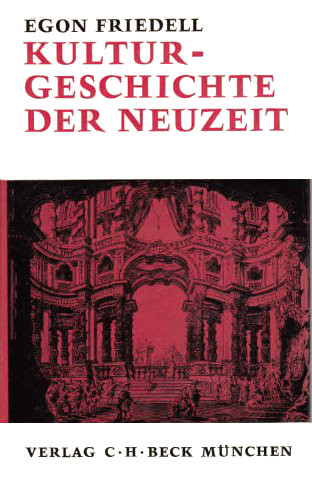Bonaventure Soh Bejeng Ndikung: In a While or Two We Will Find the Tone: Essays and Proposals, Curatorial Concepts, and Critiques (2020)
Filed under book | Tags: · body, colonialism, epistemology, gender, history, ideology, indigenous peoples, knowledge, memory, power, race, refugees, religion, slavery

“This collection of writings from Bonaventure Soh Bejeng Ndikung presents, for the first time in one volume, essays and proposals edited anew. Ndikung’s expanded curatorial practice delineates the space of exhibition making as a space of critical thinking and of experimentation. By proximity, these texts echo each other, resonate with each other, interfere with each other, and present perspectives on the political, poetic, and philosophical potentials of exhibition making, beyond the tight corset of the discipline itself.”
Compiled by Sunette Viljoen and Federica Bueti
Edited by Chiara Figone and Ines Juster
Publisher Archive Books, Berlin, 2020
Perspectives series
Open access
ISBN 3948212139, 9783948212131
250 pages
PDF (50 MB)
Comment (0)Egon Friedell: A Cultural History of the Modern Age (1927–) [DE, EN]
Filed under book | Tags: · aesthetics, art history, cultural history, history, modernity, politics, religion

Austrian essayist, cabaret performer, and amateur cultural historian Egon Friedell is best known for his brilliant, playful, and stimulating magnum opus, A Cultural History of the Modern Age (1927-31), written under the influence of Oswald Spengler and Jacob Burckhardt. He hoped for a rebirth of Western culture; the Modern Age, which was born from the Great Plague of the fourteenth century, has come to its end. At the eve of World War II, Friedell committed suicide by jumping from a window of his apartment. The German writer Thomas Mann ranked Friedell as one of the greatest stylists of the German language.
A Cultural History of the Modern Age, inspired by H.G. Well’s The Outline of History (1920), is dedicated to Max Reinhardt. Its first volume deals with Renaissance and Reformation, the second Baroque, Enlightenment and the French Revolution, and the third part Romanticism, Liberalism, Imperialism, and Impressionism. Friedell’s view is subjective and intuitive – all history is saga and myth and it is nothing more than a difference in degree between historian and poet. “All the classifications man has ever devised are arbitrary, artificial, and false,” Friedell wrote, “but simple reflection also shows that such classifications are useful, indispensable, and above all unavoidable since they accord with an innate aspect of our thinking.” Following the Hegelian lines of though, Friedell sees his subject basically as a the process of spiritual history. Oswald Spengler’s (The Decline of the West, 1918-1922) pessimism and atheism he rejects. From the English writer, historian, and critic Thomas Carlyle (1795-1881) Friedell adopted the romantic “great man” theory of history, the hero-worship, totally ignoring its ominous connection with the political reality of his day. Every era and every generation has according to Friedell its own hero, a genius, who personifies the Zeitgeist, the spirit of the age. Nietzsche was for Friedell the epitome of the pre-WW I era. (from Petri Liukkonen’s short biography of Friedell)
German edition
Publisher Beck, Munich, 1927, 1928, 1931
This edition, Zweitausendeins, Frankfurt am Main, 2009, 1335 pages
English edition
Translated by Charles Francis Atkinson
With an Introductory Essay by Alfred Polgar
Publisher Alfred A. Knopf, 1930, 1931, 1932
Fifth printing, 1953 (Vol 1); Third printing, 1954 (Vol 2); First printing, 1932 (Vol 3)
353 + 457 + 489 pages
via hz40lat46
Review (of Vol 1, Crane Brinton, Speculum, 1953)
Review (of Vols 1-2, International Journal of Ethics, 1932)
Review (of Vol 2, Eli Siegel, Scribner’s Magazine, 1931)
Review (of Vol 3, Robert Briffault, Scribner’s Magazine, 1932)
Review (of Vol 1, C. Hartley Grattan, The Forum, 1930)
Review (of Vol 1, David Owen, The Saturday Review, 1930)
Review (of Vol 2, The Saturday Review, 1932)
Review (of Vol 3, Alfred M. Frankfurter, The Bookman, 1932)
Wikipedia (DE)
Kulturgeschichte der Neuzeit; Kulturgeschichte Ägyptens (German, 1927-31/2009, at Archive.org)
A Cultural History of the Modern Age, Volume I, Volume II, Volume III (English, trans. Charles Francis Atkinson, 1930-32, no OCR)
Raoul Vaneigem: The Movement of the Free Spirit (1986/1994)
Filed under book | Tags: · economics, history, market, religion

“This book by the legendary Situationist activist and author of The Revolution of Everyday Life examines the heretical and millenarian movements that challenged social and ecclesiastical authority in Europe from the 1200s into the 1500s.
Although Vaneigem discusses a number of different movements such as the Cathars and Joachimite millenarians, his main emphasis is on the various manifestations of the Movement of the Free Spirit in northern Europe. He sees not only resistance to the power of state and church but also the immensely creative invention of new forms of love, sexuality, community, and exchange. Vaneigem is particularly interested in the radical opposition presented by these movements to the imperatives of an emerging market-based economy, and he evokes crucial historical parallels with the antisystemic rebellions of the 1960s. The book includes translations of original texts and source materials.”
Originally published as Le Mouvement du libre-esprit, Editions Ramsay, 1986
Full title: The Movement of the Free Spirit: General Considerations and Firsthand Testimony Concerning Some Brief Flowerings of Life in the Middle Ages, the Renaissance and, Incidentally, Our Own Time
Translated by Randall Cherry and Ian Patterson
Publisher Zone Books, 1994
ISBN 0942299701, 9780942299700
302 pages
via aleksag
PDF (updated on 2013-4-30, thanks esco_bar!)
Comment (1)
